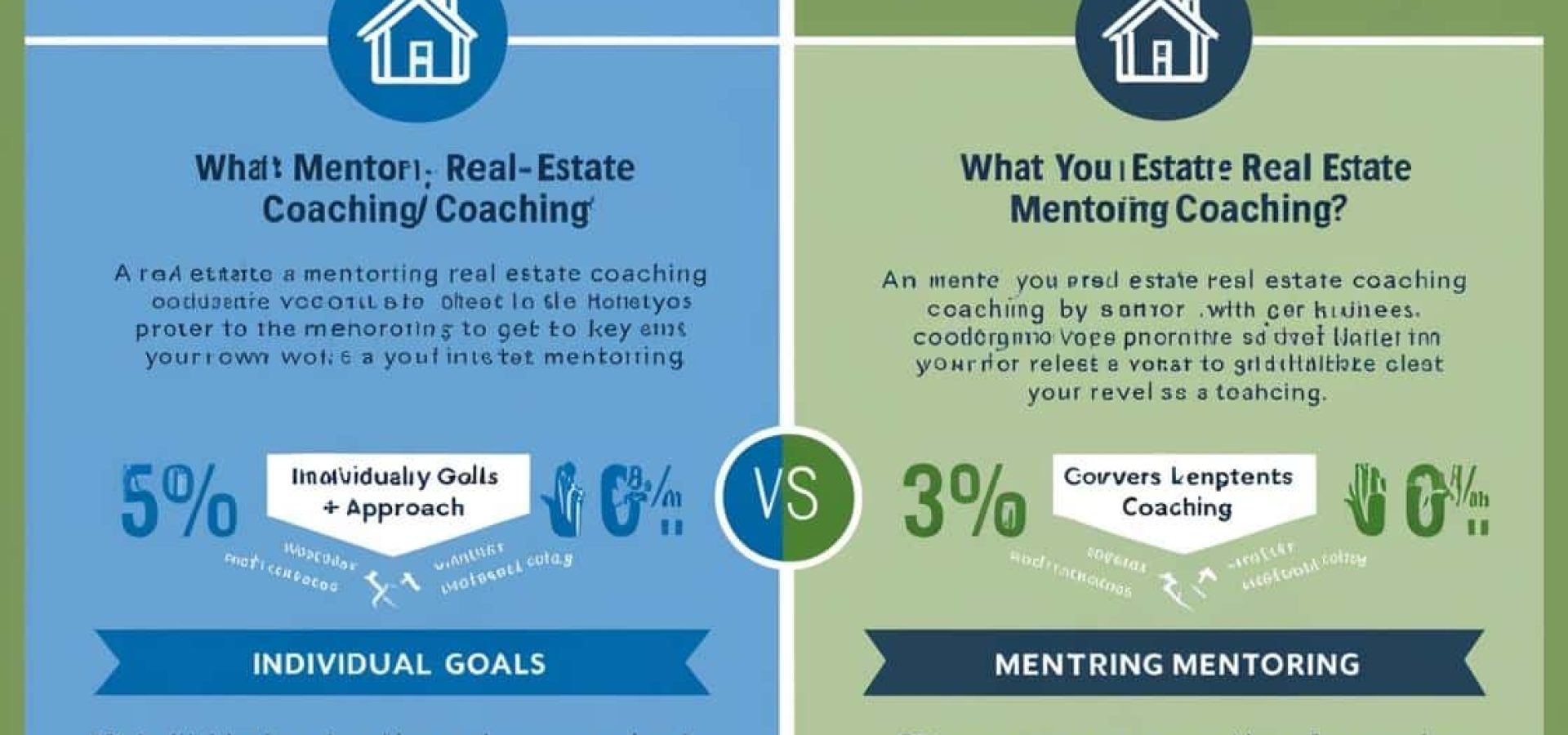
In the fast-paced and competitive world of Texas real estate, every advantage matters. Whether you’re launching your career in Houston, expanding your network in Dallas, or building a brand in Austin, you’ll hear a lot about two key types of support: coaching and mentoring.
At first glance, they might seem interchangeable. Both involve guidance from someone more experienced. But in reality, coaching and mentoring serve very different purposes—and knowing the difference can make a big impact on your growth.
Coaching is structured, goal-driven, and focused on performance.
Mentoring is relationship-based, wisdom-driven, and focused on long-term development.
Think of a real estate coach as your personal trainer. They push you toward specific results. A mentor, on the other hand, is more like a seasoned advisor—offering insights based on experience, often without a rigid plan.
Let’s break them down further:
A real estate coach is a professional who helps you grow your business through accountability, systems, and strategy. Coaching usually involves:
Regular one-on-one or group sessions
Clear goal setting (e.g., number of listings, income targets)
Progress tracking and accountability
Scripts, tools, and lead generation techniques
Focus on performance, productivity, and profitability
In Texas, where market conditions vary widely between regions, a local real estate coach can help you tailor your approach to cities like San Antonio or Fort Worth, making sure your strategy fits the local demand.
Best For:
Agents who want structure, fast growth, and expert systems to reach a specific goal.
A real estate mentor is typically a more experienced agent or broker who offers ongoing guidance and wisdom based on their own journey. Mentoring relationships are often:
Informal or semi-formal
Built on mutual respect and rapport
Focused on personal and professional growth
Less structured, more flexible
Long-term in nature
Mentors may share personal stories, offer advice during challenges, or help you make big career decisions—like choosing the right brokerage or handling a difficult client.
Best For:
New or intermediate agents looking for career guidance, insight, and emotional support over time.
| Feature | Coaching | Mentoring |
|---|---|---|
| Structure | Highly structured | Loosely structured |
| Duration | Short- to mid-term | Long-term relationship |
| Focus | Goals, performance, and results | Wisdom, development, and perspective |
| Cost | Usually paid | Often free or broker-provided |
| Style | Professional, direct | Supportive, informal |
| Accountability | High | Varies |
Yes—coaching and mentoring can complement each other. A coach gets you moving faster and more efficiently. A mentor helps you grow with depth, insight, and stability.
For example:
You might hire a real estate coach to help you build a lead generation system and close your first 10 deals.
At the same time, you may have a mentor in your brokerage who helps you navigate the emotional ups and downs of working with difficult clients or growing your team.
Whether you’re in your first year or your fifth, surrounding yourself with the right people is essential. A coach gives you the plan and pressure to act. A mentor gives you perspective and personal support.
In the world of Texas real estate—where the stakes are high and the markets are constantly shifting—having both can give you an unstoppable edge.
Ask yourself: Do I need someone to push me to the next level—or someone to walk beside me while I grow?
The answer might be one, the other, or both.
Subscribe for exclusive property listings and market updates.
Ready to take your first step toward a successful real estate career?
Join the Modern Agent Institute community today and get 10% OFF your first course—just for subscribing to our email list!
Stay ahead with insider updates, career tips, and exclusive offers designed to help you launch, grow, and lead in Texas real estate.